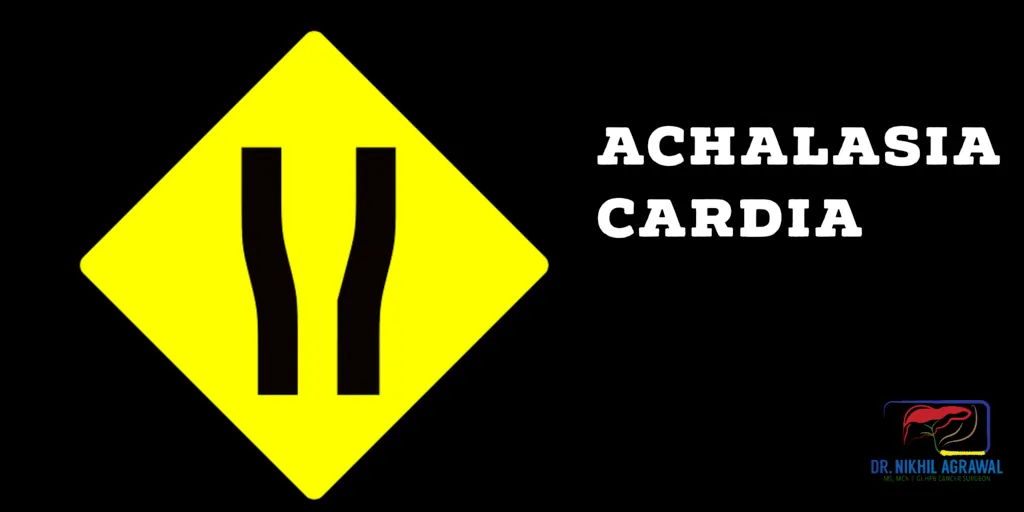Achalasia Cardia

Introduction
Achalasia cardia is a rare oesophageal motility disorder characterized by the inability of the lower oesophageal sphincter (LES) to relax properly. This results in impaired swallowing and regurgitation of food. This condition affects people of all ages, but it is most commonly diagnosed between the ages of 30 and 60. Achalasia can significantly affect an individual's quality of life, causing discomfort and difficulty in consuming food.
Understanding oesophageal motility
The oesophagus is a muscular tube that connects the throat to the stomach, facilitating the passage of food and liquids. Its smooth muscle layers propel food downward through rhythmic contractions called peristalsis. The LES, a specialised ring of muscles at the junction of the oesophagus and stomach, acts as a valve, relaxing to allow food to enter the stomach and contracting to prevent stomach acid from flowing back into the oesophagus. In achalasia, this relaxation does not happen properly, causing food and liquid to get stuck in the oesophagus.
Causes of achalasia
The exact cause of achalasia is unknown. It is thought to be due to damage to the nerves that control the LES. This prevents the LES from receiving signals to relax and open up when swallowing. The vagus nerve is the main nerve that controls the LES. Inflammation, viral infections, autoimmune disorders, or unknown factors may damage the vagus nerve over time leading to achalasia.
Symptoms of achalasia
The major symptoms of achalasia include:
- Dysphagia - Difficulty swallowing foods and liquids. Solids are harder to swallow than liquids.
- Regurgitation - Food and liquid comes back up into the throat or mouth, especially when lying down.
- Chest pain - Some people experience chest pain or pressure when swallowing.
- Weight loss - Achalasia can prevent proper nutrition absorption, leading to gradual weight loss.
- Coughing or choking - Food and liquid may accidentally enter the airway, causing coughing spells, especially at night.
As the condition worsens, swallowing becomes progressively more difficult. Symptoms usually develop slowly over years.
Diagnosis of achalasia
We diagnose achalasia using one or more tests:
- Barium swallow X-ray - This special X-ray observes the oesophagus after swallowing a liquid containing barium. This shows narrowing at the LES and oesophageal dilation.
- Esophagoscopy - A thin, flexible tube with a camera (endoscope) is inserted through the mouth to examine the oesophagus. This allows doctors to see LES obstruction directly.
- Oesophageal manometry - A thin tube measures pressures along the oesophagus before and after swallowing. Elevated LES pressure and lack of LES relaxation show achalasia.
Treatment of achalasia
Several treatments can help improve swallowing in achalasia:
- Medications - Drugs like nitrates or calcium channel blockers aim to relax the LES muscles. Effects are often temporary.
- Botulinum toxin injection - Botox injections into the LES muscle paralyse it temporarily to improve swallowing. Effects last around 6 months.
- Balloon dilation - A balloon is inserted in the oesophagus and inflated to stretch and tear LES muscle fibres. This is very effective but may need to be repeated.
- Surgery (myotomy) - Cutting LES muscle fibres (myotomy) via laparoscopy reduces obstruction. It is successful in 80-90% of patients long-term.
- Peroral endoscopic myotomy (POEM): This endoscopic procedure involves creating a tunnel in the oesophageal muscle layers to access the LES and perform a myotomy. POEM has shown promising results and is becoming increasingly popular.
Lifestyle Measures
After treatment, several lifestyle modifications can help manage achalasia:
- Eat slowly and chew food thoroughly. Take small bites.
- Drink fluids during meals to help food pass through the oesophagus.
- Sleep with head elevated 30-45 degrees to prevent nighttime reflux.
- Avoid eating near bedtime and wait 2-3 hours after meals before lying down.
- Stop smoking, alcohol, and foods that can aggravate symptoms.
Stay Alert! Stay Healthy!
Wish you a speedy recovery!

